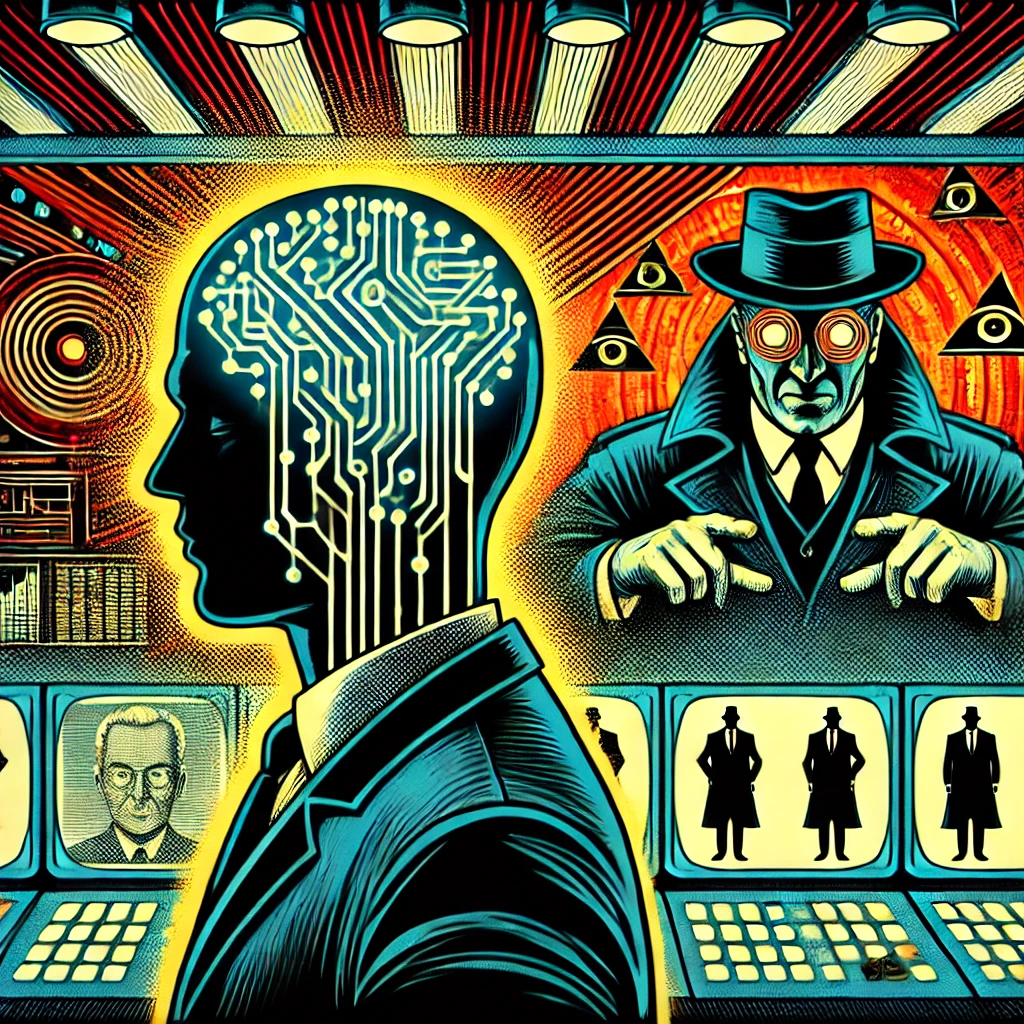Neil Sanders Your Thoughts Are Not Your Own on Veritas
https://www.youtube.com/watch?v=7GvsY3GeVNM
Neil Sanders is a British author, researcher, and lecturer known for his work on topics related to mind control, mass manipulation, and the influence of media and propaganda on public consciousness. In his book “Your Thoughts Are Not Your Own,” Sanders explores the pervasive influence of psychological operations (psyops), propaganda, and social engineering techniques on individual beliefs, attitudes, and behavior.
Sanders examines how various institutions, including governments, intelligence agencies, corporations, and media organizations, use tactics such as manipulation of information, framing of narratives, and exploitation of cognitive biases to shape public opinion and control individual thought patterns. He argues that many aspects of modern society, including advertising, entertainment, politics, and consumer culture, are designed to influence and control human behavior at a subconscious level.
In interviews and presentations, Sanders discusses a range of topics related to mind control and social engineering, including:
1. Mass Media Manipulation: Sanders explores how mainstream media outlets shape public perception through selective reporting, framing of narratives, and repetition of key messages. He discusses the role of media conglomerates, government agencies, and advertising industries in controlling the flow of information and shaping public opinion.
2. Psychological Warfare: Sanders examines the history and tactics of psychological warfare, including propaganda campaigns, psychological operations, and perception management techniques used by military and intelligence agencies. He discusses how these tactics are employed to influence public attitudes, undermine dissent, and manipulate social behavior.
3. Mind Control and Conditioning: Sanders discusses the techniques of mind control and conditioning used in various contexts, including cults, religious groups, and intelligence agencies. He explores the use of hypnosis, trauma-based conditioning, and psychological manipulation to control individual beliefs and behaviors.
4. Social Engineering and Cultural Programming: Sanders examines the ways in which societal norms, cultural values, and behavioral patterns are engineered and reinforced through education, entertainment, and social institutions. He discusses how cultural programming shapes individual identities, values, and perceptions of reality.
Overall, Sanders’ work on mind control and social engineering challenges conventional notions of free will and individual autonomy, highlighting the subtle and often invisible ways in which external forces influence human thought and behavior. His insights into the mechanisms of mass manipulation and psychological conditioning offer valuable perspectives on the complex interplay between power, media, and consciousness in modern society.
